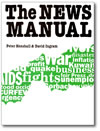 In these chapters we look at the major ethical issues in journalism and at the laws which will probably affect the way you work.
In these chapters we look at the major ethical issues in journalism and at the laws which will probably affect the way you work.
Chapters 56 to 62 are on ethics and the final nine chapters of this guide are on law. The two are not quite the same. Ethics is the consideration of what is right and wrong; laws are statements of what is permitted and not permitted.
These chapters are unlike the rest of The News Manual, in that you need to read them through from beginning to end until you understand all the concepts. In the first two-thirds of this guide we concentrated on the skills and techniques of reporting. These are often specific to certain tasks or assignments. For example, you could read the chapter on sport before covering a football match. Chapters 56 to 72 are slightly different. Because everything you do in journalism may involve ethical and legal decisions, there is no single occasion when you can use them to prepare for a specific assignment. You need to think about ethical and legal questions in everything you do.
Some of the ethical principles we discuss are so important to professional journalism that you really have no choice but to obey them. If you disregard these central principles of journalism, you will not only have behaved badly as a journalist, but you will also have undermined the very foundations upon which professional journalism is built.
Many ethical issues are not clear cut. There are times when the demands to do one thing conflict with the demands to do another. For example, there are occasions when you can justify invading a person's private life in order to expose something harmful to society, and there are other occasions when it is not justifiable. These are decisions which can only be made case-by-case after careful thought.
You might like to use Chapters 56 to 73 as starting points for discussing the issues with your colleagues. Read the chapters, raise the issues and see what conclusions you reach. You could organise seminars or workshops to discuss the individual issues.
Do not let the process stop at discussion. Use the outcome to draw up a code of ethics for journalists in your country. If you already have such a code, discussion of the issues can lead you to refine, extend or re-interpret it. You can find a discussion on codes of ethics and links to a number of codes in Chapter 58: Pressures on journalists.
The structure of this volume of 'The News Manual' has changed slightly from the book version. To save you having to scroll down too much text on-screen, some chapters in the book have been split into several web pages for this online edition. If you are new to 'The News Manual', you might like to read these 'linked' chapters together, e.g. Chapters 64 to 66 on Court reporting. To make it easier to read these whole topics from start to finish, links have been provided at the bottom of each page to take you to the next instalment in that series.
There are two ways of finding things in The Manuals. You can either go to the main Index by clicking on the link on the right of this page, or you can follow the 'QuickLink to the News Manual volumes' (also on the right) to see a list of chapters for each of the three volumes.

